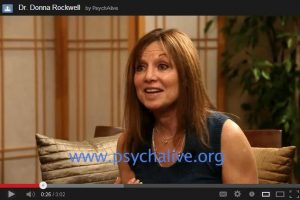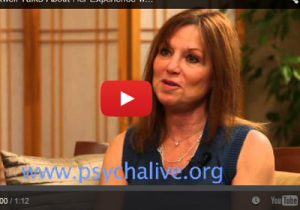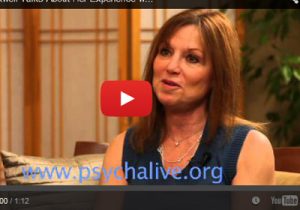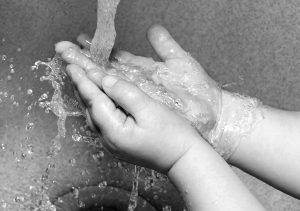VIDEO: Optimal Parenting
In her interview with PsychAlive Senior Editor Lisa Firestone, Dr. Donna Rockwell talks about optimal parenting. Watch or read the interview below.
But really, the best that we can teach them is by being interested in them as people. And instead of saying I need you to be a doctor or a lawyer or a candle maker, to discover, what do you love about life and what’s interesting to you and what do you want to be, you know, tell me. And they are born already gifted, already extraordinary at something and we ruin that if we try to negotiate how they’re going to grow in life.
It’s really more important to be in the bleachers cheer leading, with boundaries, for them. Who are you? What do you want to do in life? What do you want to be? And to support that. I think, as you’re saying, maybe some parents say, use their children as charms on a charm bracelet, you know and I say that with a great deal of compassion.
But really, they’re like the future. And we are, once we have them, we’re here to sustain their development, and we don’t have a clue who they’re supposed to be and what they’re supposed to do. And getting them into the best school and the best preschool, the best nursery school for $30,000.00 a year, you know. And that’s not what’s going to help them succeed in life. What’s going to help them succeed in life is having at least one, hopefully two parents who are fascinated with them. And go through the journey of life’s adventure together.
Another thing I used to say all the time to my kids was, “But Mommy, Mommy.” And I’d say, “You know. I’m on your side. We’re on the same team. I’m not against you. Let’s work together.” And I think that there was this cultivation of I was for them. And I think a lot of times when we’re not mindful and we lose our patience and we start yelling at our kids, they don’t feel like we’re on their side. We create an us and them and then, that goes on for all of those 18 years.
And that does not really speak to future good relationships or even a well-grounded person because they’ve grown up in an us and them world instead of an us and us. We need to create, as Sakyong Mipham talks about, he’s Chögyam Trungpa’s son at Shambala. He now runs the Shambala organization. He says we need to have more “we” in the world, and we need to start that within our own families. We need to let our children know we’re a “we.” We’re not a “me versus you.” That’s so important. And that’s mindfulness.









Leave a Reply
You must be logged in to post a comment.